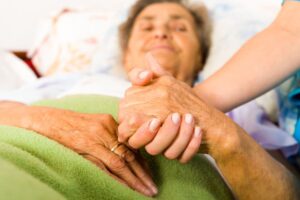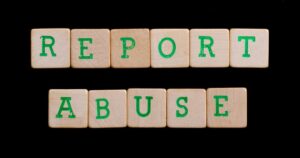Why Bedsores Might Be a Sign of Nursing Home Abuse
Abuse and Neglect, Nursing Home Abuse, Personal InjuriesBedsores, also known as pressure ulcers, can be a sign of nursing home abuse. These painful and often preventable wounds develop when a person remains in the same position for extended periods, causing pressure and limited blood flow to certain body areas. While bedsores can occur in any healthcare setting, they are particularly concerning in nursing homes where residents require assistance with mobility and repositioning. Bedsores can cause significant pain, infection, and even death if not adequately treated. Investigating the presence of bedsores in nursing home residents requires a thorough understanding of the individual’s care plan, documentation, and staffing practices.
Families should proactively monitor their loved ones for signs of bedsores and report any concerns to the nursing home administration. Contacting a skilled South Carolina bedsores attorney can help ensure that the rights and safety of elderly residents are protected. If your loved one suffered one or more bedsores due to nursing home negligence or abuse, they deserve justice and compensation for their injuries.
Understanding Bedsores

Bedsores, or pressure ulcers, are wounds on the skin and underlying tissues due to prolonged pressure on specific body areas. They often occur in individuals with difficulty moving or changing positions independently, such as nursing home residents who may be bedridden or have limited mobility. The constant pressure on these areas restricts blood flow, leading to tissue damage and the formation of bedsores. Common areas of the body where bedsores develop include the sacrum, heels, hips, and elbows.
Bedsores can progress through four stages:
Stage 1: The skin appears discolored, usually red, and may feel warm or cool. The affected area may feel firm or soft compared to the surrounding skin.
Stage 2: The skin breaks open, forming a shallow, painful ulcer that may look like a blister or a shallow crater. The surrounding skin may show signs of inflammation.
Stage 3: The ulcer deepens, extending into the underlying layers of tissue. It may appear as a deep crater or have a tunneling effect.
Stage 4: The ulcer is severe, reaching into the muscles and exposing tendons and bones. Infection, necrosis, and other complications are common.
Bed Sore Causes and Risk Factors
Pressure primarily causes bedsores, but several factors can increase the risk of developing them. These include:
Immobility: Being immobile or confined to a bed or chair for long periods increases the risk of bedsores.
Poor nutrition: Malnourished individuals are at a higher risk of developing bedsores due to compromised skin health and a weakened immune system.
Incontinence: Prolonged exposure to moisture from urine or feces increases the risk of skin breakdown and the development of bedsores.
Reduced sensation: Neurological conditions, such as spinal cord injuries or diabetic neuropathy, can lead to a loss of sensation, making it challenging to detect pressure and discomfort.
Friction and shearing: Friction occurs when the skin rubs against another surface, while shearing happens when the skin slides against the underlying tissues. These forces can damage the skin’s integrity and increase the risk of bed sore development.
Poor hygiene and inadequate skincare: Infrequent or improper skin cleaning can contribute to bed sore formation.
Chronic medical conditions: Conditions like diabetes, vascular disease, and autoimmune disorders can impair blood flow and delay wound healing, increasing the risk of bedsores.
Signs and Symptoms of Bedsores
Recognizing the signs and symptoms of bedsores is necessary for identifying potential cases of nursing home abuse. Common signs and symptoms include:
Red or discolored skin: In the early stages, the skin in the affected area may appear red or discolored. This discoloration may not blanch or fade when pressure is applied.
Warmth or sponginess: The skin in the affected area may feel warmer or spongier than the surrounding healthy skin.
Swelling or tenderness: Bedsores can cause swelling and tenderness in the affected area. The skin may feel puffy or appear swollen.
Open sores or ulcers: As bedsores progress, the skin may break open, forming an open sore or ulcer. These sores may be shallow or deep, painful, and prone to infection.
Drainage: Bedsores may produce pus or other drainage in more severe cases. This can be a sign of infection and requires immediate medical attention.
Odor: A foul odor from the affected area may indicate an infection or poor wound care.
If you notice any of these signs or symptoms in your loved one residing in a nursing home, don’t hesitate to protect their well-being and seek legal guidance.
Recognizing the Signs of Nursing Home Abuse
Bedsores are often an indicator of neglect or abuse in nursing homes. Preventable bedsores can develop when staff members fail to provide adequate care, including regular turning and repositioning of residents. Families should be vigilant in monitoring their loved ones for any signs of nursing home abuse. Some signs to watch out for include:
Presence of bedsores: The appearance, especially in advanced stages, suggests a lack of proper care and attention to the resident’s needs.
Poor hygiene: Neglected residents may exhibit signs of poor hygiene, such as dirty or soiled clothing, foul odors, or unkempt appearance.
Weight loss or malnutrition: Inadequate nutrition can lead to weight loss and contribute to the development and worsening of bedsores.
Dehydration: Neglectful care can result in dehydration, compromising the resident’s skin health and increasing the risk of bedsores.
Unexplained injuries: Physical abuse may cause injuries such as bruises, fractures, or other unexplained wounds.
Frequent infections: If the resident experiences frequent infections or fails to recover from existing infections, it may be a sign of neglect that has led to bedsores.
Legal Responsibilities of Nursing Homes

Nursing homes have legal obligations to their residents, including providing appropriate care and treatment and preventing bedsores. These responsibilities ensure the well-being and safety of the residents. Failure to uphold these obligations may amount to negligence or abuse.
Nursing homes should have protocols for preventing and promptly treating bedsores. These include regular skin assessments, adequate nutrition and hydration, and proper wound care and repositioning schedules. If a nursing home fails to meet these standards, it may be held legally responsible for the resulting injuries.
Recognizing the Red Flags
When bedsores are present in a nursing home resident, remember to be aware of additional red flags that suggest a possible case of nursing home abuse. These signs may include:
Inconsistent Explanations: Staff members provide inconsistent or unsatisfactory explanations about the origin or progression of the bedsores.
Evasive Staff Behavior: Avoidance or reluctance to answer questions or address concerns regarding the resident’s well-being, care, or treatment.
Unaddressed Complaints or Concerns: Failure to address or neglect complaints made by the resident or their family regarding poor care, mistreatment, or unsanitary conditions.
Legal Remedies for Nursing Home Abuse
If you suspect that your loved one has been a victim of nursing home abuse, be sure to take immediate action to protect their rights and pursue justice. Consulting with a skilled and experienced nursing home abuse lawyer can provide you with the guidance and support needed to navigate the legal process. Here are some legal remedies that may be available to you:
Reporting to the Appropriate Authorities
If you suspect nursing home abuse, report your concerns to the appropriate authorities. This may include filing a complaint with the state health department or contacting adult protective services. These agencies can conduct investigations and take necessary actions to protect your loved one and hold the nursing home accountable for their actions.
Civil Lawsuit
In cases of nursing home abuse, you can file a civil lawsuit against the facility and the individuals responsible for the abuse. This can enable you to pursue compensation for your loved one’s injuries, medical expenses, pain and suffering, and other damages. An experienced nursing home abuse lawyer can guide you through the lawsuit process and help build a strong case on your behalf.
Criminal Charges
In severe cases of nursing home abuse involving intentional harm or neglect, criminal charges may be appropriate. Contacting the local law enforcement agencies and providing them with the necessary information can initiate a criminal investigation. If the responsible individuals are found guilty, they may face criminal penalties, including imprisonment.
Taking Action: Reporting and Seeking Legal Assistance

If you suspect nursing home abuse or neglect, now is the time to take action to protect your loved one’s rights and safety. Start by documenting any signs of abuse or neglect, including photographs of bedsores, injuries, or unsanitary conditions. Record conversations with nursing home staff and any efforts to address the concerns.
Next, report your concerns to the nursing home administration. Every nursing home should have an established protocol for addressing complaints and investigating allegations of abuse or neglect. If the nursing home fails to take appropriate action or if you believe your loved one’s safety is at immediate risk, contact local authorities or adult protective services.
In addition to reporting abuse, contact a compassionate nursing home abuse attorney who can provide valuable guidance and protection for you and your loved one. An attorney can guide you through a nursing home abuse case and advocate for the resident’s rights. They can investigate the situation’s details, collect valuable evidence, and create a solid legal case to hold the nursing home accountable for their negligence.
Finding Legal Support
If your loved one has bedsores or you otherwise suspect nursing home abuse or neglect, contact an experienced nursing home abuse lawyer. They have the necessary experience and knowledge to handle these complex cases and fight for the rights and well-being of your loved one.
Finding the Right Nursing Home Abuse Lawyer
You must find the right lawyer when seeking legal assistance for nursing home abuse cases. Here are some factors to consider when selecting a nursing home abuse lawyer:
Experience and Skill
Look for a lawyer with extensive experience handling nursing home abuse cases. They should deeply understand the legal complexities involved and be well-versed in the regulations governing nursing homes. Additionally, seek someone with a proven track record of successfully advocating for victims’ rights and securing fair compensation, as this experience can significantly impact the outcome of your case.
Track Record of Success
Research the lawyer’s track record and past results in nursing home abuse cases. Look for positive outcomes and significant settlements or jury verdicts that demonstrate the lawyer’s ability to advocate for their clients effectively.
Communication and Empathy
Choose a lawyer who communicates clearly and regularly, keeping you informed about the progress of your case. Finding a lawyer who shows empathy and understanding for the emotional challenges you and your loved one may face is also important.
Resources and Support
Ensure that your law firm has the resources and support staff to handle your case effectively. Nursing home abuse cases can be complicated and require professional testimony, medical records review, and investigative work. A law firm with a network of professionals can provide comprehensive assistance.
Take the first step in protecting your loved one’s rights by contacting a nursing home abuse attorney for a consultation. They can assess the situation, provide personalized advice, and guide you through the legal process.
Contact a Seasoned Nursing Home Abuse Attorney Today
Bedsores, or pressure ulcers, can be a sign of nursing home abuse and neglect. Families must be vigilant in monitoring their loved ones for signs of these painful wounds and take action if abuse or neglect is suspected. By understanding the causes and risk factors of bedsores, recognizing the signs of nursing home abuse, and seeking legal assistance from an experienced attorney, families can protect their loved ones and hold negligent nursing homes accountable for their actions.
If you suspect nursing home abuse, it is important to seek a knowledgeable personal injury lawyer as soon as possible. Contacting a seasoned attorney can provide the support you need to protect your rights and hold negligent parties accountable.
An experienced attorney will have a deep understanding of the laws surrounding nursing home abuse cases and will be able to handle the legal system. Don’t hesitate to reach out to a nursing home abuse attorney today to take the first step towards justice.
Nathan Hughey, an attorney and fourth-generation South Carolinian, founded Hughey Law Firm in 2007. Before that, he spent five years defending nursing homes and insurance companies. Leveraging his experience, he now advocates for those injured or wronged by such entities, securing over $290 million in verdicts and settlements.
